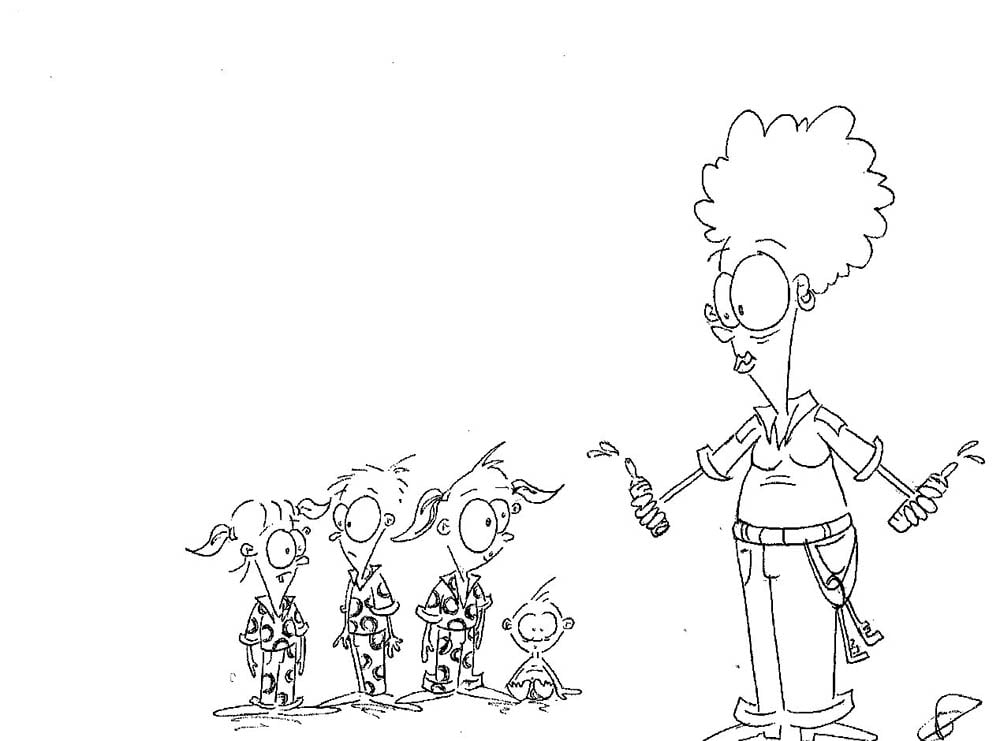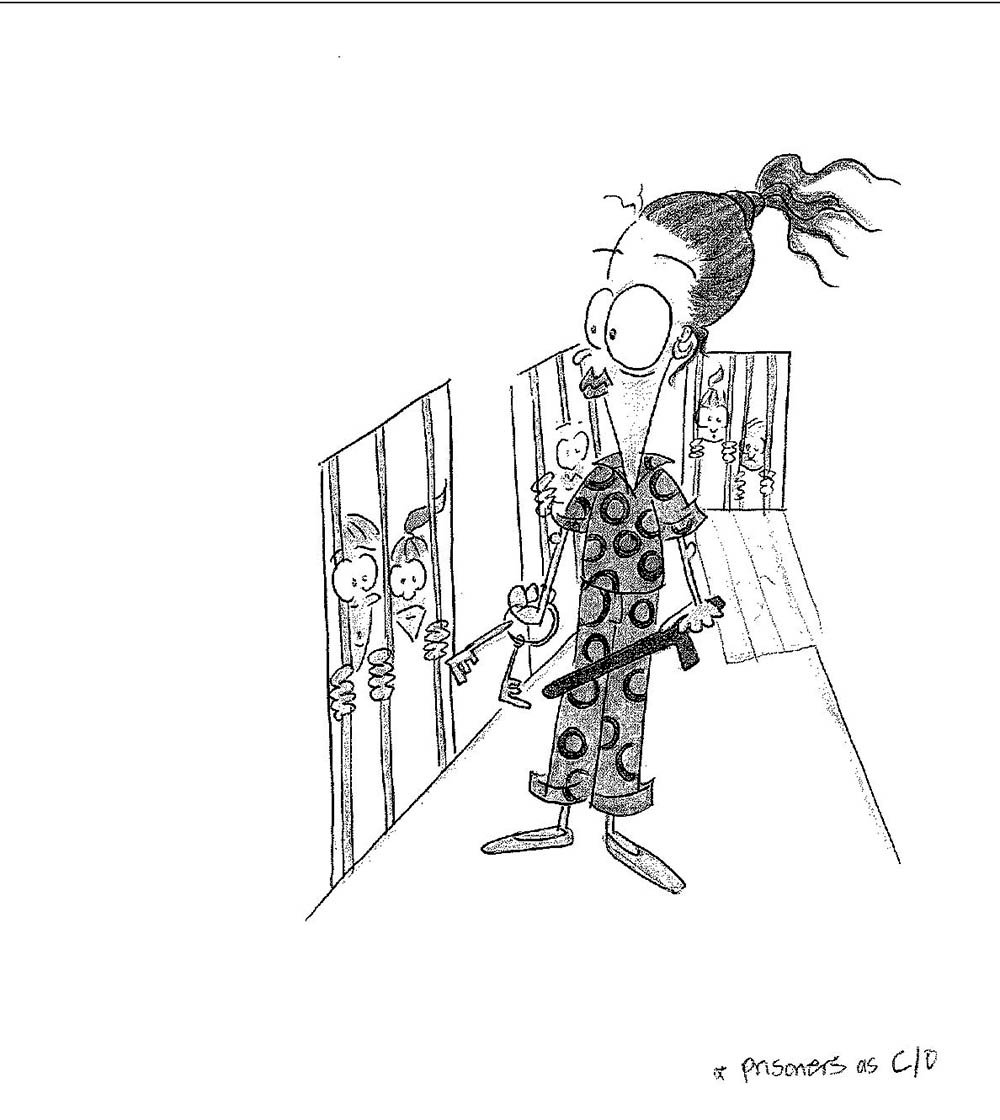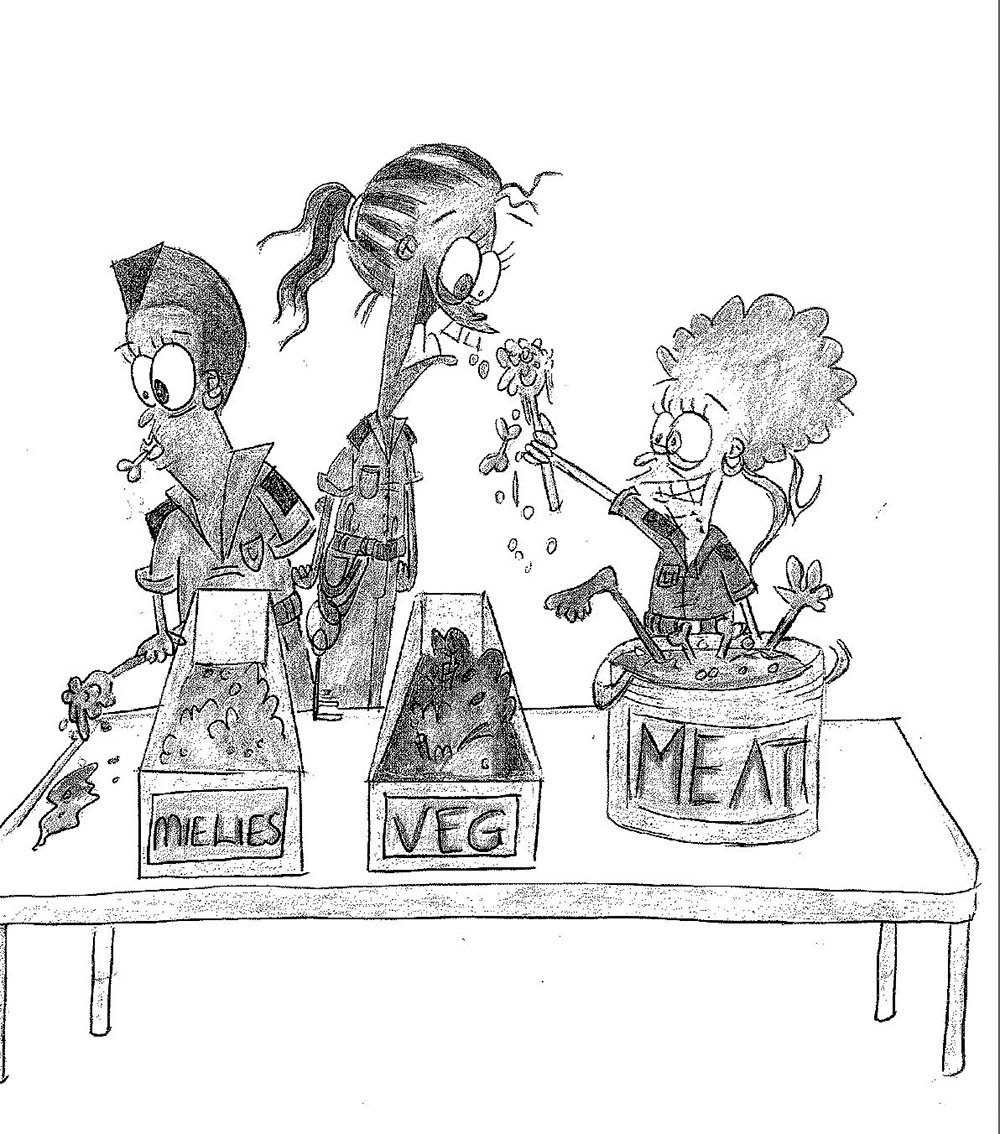The Constitutional Court has condemned conditions at the Cape Town prison
International Women’s Day on March 8 turns the spotlight on the fate of women, in particular their achievements and the slow pace of progress. An often overlooked group are women prisoners. Their needs, views and struggles barely figure in South African feminist discourse, let alone in the mainstream debate in society.
Pollsmoor Prison in the Western Cape is known for its extreme overcrowding – 300% above its capacity – which feeds into gang violence and poor sanitary conditions. Life-threatening diseases, such as tuberculosis, flourish in the poorly ventilated and overcrowded cells.
About 740 of the 8 465 inmates are women. Nationally, 3 029 women – or about 2.3% of the entire inmate population – are imprisoned, according to the 2015 annual report of the Judicial Inspectorate for Correctional Services.
Female wardens show visitors to the meeting room at the unsentenced section and ask them to leave their possessions behind a desk.
Palesa*, a dreadlocked woman in her mid-30s with big, intense eyes, waits for me on the other side of the glass partition. We both lean in to hear each other speak, through a faulty intercom.
“See this?” she asks, raising her index finger to a scar above her eyebrows. “I was put in a cell with an inmate who was known to be violent. She bit me and here, on my elbow.”
Palesa asked repeatedly for an HIV test following the assault, but she says she was never given one and was also not informed about her attacker’s HIV status.
Palesa has waited nearly three years for her trial to be completed. She was arrested in 2013 after fatally stabbing her boyfriend, who she says was trying to strangle her. Palesa says his death released her from an abusive relationship that saw her quit her job because she was locked inside her flat most days.
After her arrival at Pollsmoor, Palesa started writing a blog and drawing cartoons about prison life, but has been unable to publish them – until now.
“Hi all, this blog started as a way for me to give you out there a run-down of prison life. There are many injustices taking place at the department of correctional services and your hard-earned tax money is paying for them. An important role this blog can serve … is making the prison transparent to the public.”

The title of another blog entry reads: “Pollsmoor female unsentenced section is controlled by mafia-style ‘kitchen ladies’?”. It goes on to say: “Two things can buy you anything in this prison, and they control both: food and tobacco.”
The kitchen ladies, nicknamed “adjutants”, are female inmates tasked with running the prison kitchen. “They are correctional officers without keys who use the food in the kitchen to ‘buy’ whatever they want. The prison is their playground; they do as they please,” Palesa alleges.

Another way to survive, according to Palesa, is to find a “prison mother”. “In Pollsmoor you need a ‘tronk ma’, a female warder who ‘adopts’ you in exchange for deposits into their Shoprite accounts. These prison mothers then bring you food, medication and anything you need. But I refuse. These [correctional services] officials get a salary; why should I pay them?”
The tronk mas, Palesa says, don’t just demand money for favours: sometimes it becomes sexual when wardens initiate slanga, prison slang for a same-sex relationship.

Simone*, who was incarcerated in Pollsmoor in 2007 and 2008, chose to play slanga with a fellow inmate to survive. “It was beneficial because she gave me what I wanted.”
Simone says she struck up a relationship with the woman mainly as protection against the rampant violence in the women’s section. “There were many fights, mostly caused by jealousy over food, toiletries, tobacco. I got hit on the soles of my feet by wardens and I was bitten by another inmate.”
Melanie*, another former inmate who was imprisoned in 2010, recalls a practice called “toppers”: wardens would punish inmates by hitting the tops of their fingers with a broomstick.
Most of the female inmates interviewed in Hard Times, a 2012 research report on women prisoners in Pollsmoor produced by the University of Cape Town’s gender, health and justice unit, had experienced some form of physical or sexual abuse growing up.
Basing their findings on interviews with 53 inmates, the authors note that “the correctional system becomes an extension of the abusive domestic context, where the features of domestic violence are recreated through prison controls and other behaviours … replicating a de facto domestic violence relationship”.
Dirty cells and substandard sanitation, especially in the awaiting-trial section, also traumatise the women. “Toilets and showers were incredibly dirty, always blocked,” Melanie remembers.
‘Filthy and cramped’
Grace Nienaber is a slender, middle-aged woman dressed in the prison’s bright yellow remand uniform. She was convicted for fraud after awaiting trial for two and a half years, and was released several weeks ago after receiving a suspended sentence. “It’s filthy here,” she says. “And cramped. They have squeezed about 70 women into a cell that is meant for 30. People sleep on the floor, toilets don’t flush and forget about warm water.”
Poor sanitation and overcrowding has provided the perfect hotbed for the spread of communicable diseases in Pollsmoor, especially tuberculosis.
The Constitutional Court condemned conditions at the prison in 2012 when it ruled in favour of former inmate Dudley Lee, who had sued the government after becoming infected with tuberculosis in jail. The highest court in the land gave the correctional services department a slap on the wrist for not complying with a raft of domestic and international legislation, including standing orders on cell space, ventilation and access to medication.
Three years after that ruling, Constitutional Court Justice Edwin Cameron wrote a scathing report on the remand sections – male and female – following a visit in April last year. “Ninety-four women were crowded into a poorly aerated room. The mattresses were stinking. There was no working toilet, a clogged sink drain and only cold water … Sheets and blankets were infested with lice … [and] the cell was infested with cockroaches.”
He also signalled there was little to no access to medical staff and poorly ventilated and heavily overcrowded cells – an indication the department has not done much to uphold the Dudley Lee ruling.
Lawyers for Human Rights and Sonke Gender Justice are suing the department for what they say are subhuman conditions in the male remand section.
The high court in Cape Town recently opened the way for former Pollsmoor inmate Nassiera James to sue the department after she contracted tuberculosis in 2009. Legal damages claims usually lapse after three years, but the court ruled that James could not have reasonably known she had a claim because most inmates are unaware of their rights. Attorney Jonathan Cohen, who represented (the since deceased) Lee, is also James’s lawyer.
James, who was released from prison in December 2009, lives in a house with a small fenced-off yard on a crescent in Mitchells Plain. She meets me in her uniform and head scarf, her work outfit.
“The officials at Pollsmoor do not try to find out who has TB and who doesn’t. While I was inside, a woman died of TB. Shortly thereafter, I started feeling really ill and I was coughing blood. The prison hospital kept saying that my sputum tests all came back with a negative result.”
After an outside hospital finally diagnosed her with the pulmonary illness, she returned to Pollsmoor and was put back in a communal cell despite still being potentially infectious to fellow inmates.
“This means they do this to other inmates; keep them in a communal cell while they await their test results. They throw people together like a bunch of dogs.”
When James hears a child call out her name, she goes to the crossroads outside her house. A six-year-old boy runs towards her. “This one was born in Pollsmoor,” she says as she strokes his head. “My family took him home after seven days. Pregnant women are taken care of,” she adds.
Mothers and babies
Lerato*, an official working in the women’s section, agrees. “Several years ago, things improved when the department started a separate mother and baby unit and a crèche for women whose babies are born in prison. The children are allowed to stay for two years.”
Children who were born before their mothers were incarcerated often end up in a precarious situation. “One mother had a three-month-old baby at home and she complained that there wasn’t anyone taking care of it,” says Lerato. “I asked the social worker to look into it, but she said there was nothing she could do.”
The women interviewed for the Hard Times report describe being separated from their children as the most difficult aspect of prison life.
“It’s hard being without my kids … that’s why I would like to appeal, even if it’s only … for a less[er] sentence,” an inmate called Tokkie told the researchers through her tears.
Correctional services policy is brief on the issue of women inmates and their children. The White Paper on Corrections in South Africa only stipulates that women should be incarcerated close to their homes.
The shortage of medical staff in the prison also leads to dangerous situations, says Lerato. “We have one psychologist, one doctor and one dentist for the entire prison. Some HIV-positive women are not getting their [antiretrovirals] and inmates who I suspect have TB are not being seen to.”
Melissa*, a mother of two, says she was framed by a former boyfriend who was angry about the fact that she was leaving him. “I was at the airport with my son when custom officials called me. They found 10 kilo-grams of marijuana in my suitcase,” she recalls. Melissa was arrested and after a few days in police custody, she was brought to the awaiting-trial section of the women’s jail.
“It was sad: there were so many women there who couldn’t afford R200 bail. Some of them had only stolen bread. I was lucky; my parents paid for an expensive attorney and advocate, who found out my ex-boyfriend had phoned the airport and had provided customs officials with a detailed description of me. I was released immediately.”
Melissa also noticed the poor medical attention in the prison. “The smell in the place was unbelievable. There was a woman in there who was pregnant and emitting a horrible smell, of rotting flesh. They washed her, but the smell didn’t
go. We asked the wardens to call a doctor, because we suspected her baby had died, but no one came.
I don’t know what happened to that poor woman; I was afraid she might die.”
Melissa stayed in Pollsmoor for only a few days, but she says it affected her deeply. “It was the most traumatic experience of my life. I don’t know what I would have done if my parents hadn’t paid for the lawyers. I can’t bear to think of what it is like to be imprisoned there for longer.”
Nienaber does know what that is like. Shortly after she was brought to Pollsmoor, she found out she had skin cancer. “I did not receive any treatment here. At one point, I had open wounds on my body and I had to be admitted to Groote Schuur Hospital with septic shock. I nearly died.”
The department of correctional services declined to comment on the women’s allegations, despite repeated requests to do so.
* The women asked not to be named for fear of reprisals or because they feared they would lose their jobs.
Ruth Hopkins works as an investigative journalist for the Wits Justice Project.